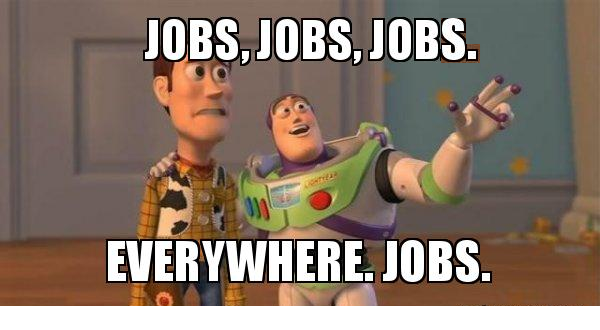SHI 8.12.20 – Not Thinking About Thinking

SHI 8.5.20 – Is an Inflation Wave Heading our Way?
August 5, 2020
SHI 8.19.10 – Unemployment and Economic Expansion
August 19, 2020After the most recent FED meeting, during the post-meeting press conference, Jerome Powell made this comment when asked about interest rates and inflation:
“We’d be looking to get inflation back up and we’d be prepared to tolerate, uh, pretty low, welcome in fact, not tolerate, but welcome very low readings on unemployment, just based on what we saw in the last, uh, in the last expansion. So, um, we’re not thinking about raising rates. We’re not even thinking about thinking about raising rates.”
So, not only is a rate hike off-the-table, any near term rate hike discussion is completely off any FED agenda. They won’t even think about talking about a rate hike! Don’t even bring up the topic, Powell is telling his associates. Think of it this way: You are ordering a pizza. And you want pepperoni on your pizza. But you’re told pepperoni is not available. “What?” you exclaim, “Why can’t I have pepperoni on my pizza?” The reply. “Not only is pepperoni off the menu, you can’t even ask about pepperoni! Never mention pepperoni again!”
OK. Perhaps I’m exaggerating a bit. After all, pepperoni is always available. But, no, I’m not exaggerating on the interest rate thing. Rates are at or near zero. And they will stay here for the foreseeable future. Which begs the question:
” How does this impact me? “
Quite significantly, in fact. For the moment, let’s assume all US interest rate ‘durations’ remain at or near zero for the next 2-3 years. Rest assured, this is a very likely future scenario. Very likely. In this “reality,” the implications are many and meaningful for your wallet, your savings account, your retirement accounts, the economy, and your investments.
Welcome to this week’s Steak House Index update.
If you are new to my blog, or you need a refresher on the SHI10, or its objective and methodology, I suggest you open and read the original BLOG: https://www.steakhouseindex.com/move-over-big-mac-index-here-comes-the-steak-house-index/
Why You Should Care: The US economy and US dollar are the bedrock of the world’s economy.
But is the US economy expanding or contracting?
Before COVID-19, the world’s annual GDP was about $85 trillion. No longer. It will shrink thanks to ‘The Great Lockdown.’ I did not coin this phrase — the IMF did. The same folks who track global GDP. Until recently, annual US GDP exceeded $21.7 trillion. Again, no longer. But what has not changed is the fact that together, the U.S., the EU and China still generate about 70% of the global economic output.
The objective of this blog is singular.
It attempts to predict the direction of our GDP ahead of official economic releases. Historically, ‘personal consumption expenditures,’ or PCE, has been the largest component of US GDP growth — typically about 2/3 of all GDP growth. In fact, the majority of all GDP increases (or declines) usually results from (increases or decreases in) consumer spending. Consumer spending is clearly a critical financial metric. In all likelihood, the most important financial metric. The Steak House Index focuses right here … on the “consumer spending” metric. I intend the SHI10 is to be predictive, anticipating where the economy is going – not where it’s been.
Taking action: Keep up with this weekly BLOG update. Not only will we cover the SHI and SHI10, but we’ll explore related items of economic importance.
If the SHI10 index moves appreciably -– either showing massive improvement or significant declines –- indicating growing economic strength or a potential recession, we’ll discuss possible actions at that time.
The BLOG:
I’ve been ruminating about interest rates for years. If you are a long-time reader, you know I’ve been predicting a steady decline in rates over the years, consistently marching ever closer to zero even as rates in other countries have plunged below zero.
As a consequence of the pandemic, we’re now at zero. And we will remain here for years. In fact, interest rates across the developed world are likely to remain on either side of zero for the foreseeable future. Zero interest rates, for a protracted period of time, will cause:
- Your bank savings account to earn close to nothing. Zero.
- Bonds or bond funds in your retirement accounts will earn close to nothing. Zero.
- Sovereign debt, like US Treasury securities, will earn close to nothing. Zero.
Notice a trend? Yep, any “risk free” or near risk-free assets will earn close to nothing for many years. Zero. These are facts. Not my opinions. Facts. Now, here are my opinions:
- Since bank savings accounts will earn almost nothing, people will look for alternative choices that may yield something.
- Since bonds and bond funds will earn almost nothing, people will look for alternative choices that may yield something.
- Since risk-free US Treasuries will earn almost nothing, people will look for alternative choices that may yield something.
Have you met TINA? Not yet? Well then, let me introduce you. TINA is an acronym for “there is no alternative.” If you haven’t heard this phrase tossed around yet, you will soon. The phrase suggests the stock market has risen, and will continue to rise, because alternative “safer” investments have no yield.
Perhaps. This could be a contributing factor. But I think there’s something even more academic at work here. And this morning on CNBC, a man who’s research I have often quoted in my blog, a man who I think very highly of, expressed my thoughts quite articulately. Dr. Edward Yardeni, the President and founder of Yardeni Research (https://www.yardeni.com/) opined that forward P/E ratios have increased significantly, because of structurally low interest rates, and they are likely to increase even more.
I agree. I suspect Dr. Robert Shiller does not, but I agree. (Shiller is the father of the CAPE index. CAPE hit an all-time high of 31.1 last week. Look it up … you’ll find it interesting.) In fact, I believe we’ll see even further expansion of the market P/E index, to levels never seen before since stock markets were invented. I contend, and I believe Dr. Yardeni agrees, that if and when short-, mid-, and long-term rates all peg near zero, the P/E ratio will move inversely over time. The longer rates stay at or near zero, this higher the market P/E ratio will rise. P/E ratios are heading up, folks, and so are stock prices. My opinion.
Here’s another of my opinions: Income (and other) taxes rates are going up. Not now, and probably not for a while. But they are heading north. Why, you ask? I’ve got a few trillion reasons — the trillions of dollars in US fiscal stimulus. Don’t believe me? Well, consider these tax policy responses following prior explosions in fiscal stimulus:
- In 1932, after the Great Depression: The ‘top marginal rate’ (TMR) increased from 25% the prior year to 63%.
- In 1944, after WW2 ended: The TMR) increased to it’s highest level, ever, in the history of US income taxation: 94%.
Yes, you read that correctly. The top marginal rate was 94% in 1944. In fact, it was in the 90%+ range for much of the 1950s! The bottom line: Someone has to pay for all the government give-aways. This time, in addition to rising income tax rates, a relatively new concept — “The Wealth Tax” — will be floated and debated in the Senate. Find this hard to believe? You shouldn’t because the first ‘wealth tax’ bill has already been submitted: https://www.sanders.senate.gov/newsroom/press-releases/sanders-colleagues-introduce-tax-on-billionaire-wealth-gains-to-provide-health-care-for-all-
Sanders calls his proposed legislation “The Make Billionaires Pay Act.” I don’t think Bernie is a big fan of billionaires. Bernie’s logic, “The legislation I am introducing today will tax the obscene wealth gains billionaires have made during this extraordinary crisis.” His proposal: Establish a 60% tax on the gains in wealth billionaires made between March 18th, 2020 and January 1, 2021. And yes, the bill has already been introduced in the Senate.
We definitely live in interesting times. Previously, I would have opined I agree with George Santayana’s quote, “Those who cannot remember the past are condemned repeat it.” Today, I feel we exist today in Mark Twain’s parallel universe where the quip “History doesn’t repeat, but it does rhyme” is more applicable. We’ve never before seen zero interest rates for a protracted period of time. We’ve never before experienced this level of concurrent fiscal and monetary stimulus. History is not repeating at present. Perhaps, alternatively however, it’s rhyming? 🙂
Agree? Disagree? Share your views … send me an email or respond to the blog.
– Terry Liebman




